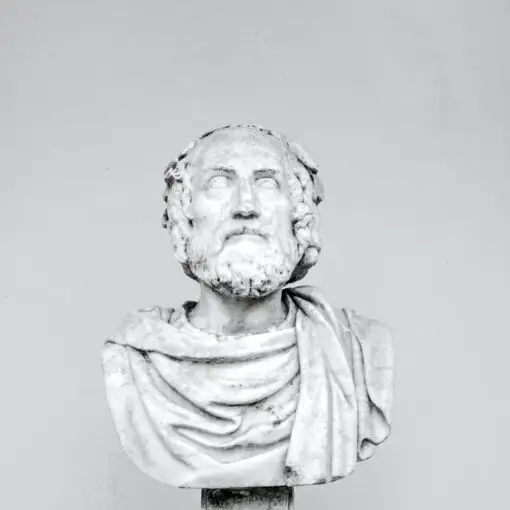Stoicism, an ancient Greek philosophy, has surged in popularity due to its practical approach to dealing with life’s challenges. Centered on self-control, virtue, and rationality, it teaches that one should strive to maintain a will that is in harmony with nature.
However, as individuals seek diverse philosophical frameworks to guide their lives, questions arise about effective alternatives to Stoicism. While Stoicism focuses on inner tranquility and the things within one’s control, not every aspect of human experience is adequately addressed by this philosophy, prompting the exploration of different schools of thought.


Some seek philosophical alternatives due to Stoicism’s emphasis on rationality, which may overshadow the richness of emotional experiences in life such as love, joy, and enthusiasm. Others look for systems of thought that offer broader ethical considerations or differing views on personal growth and self-reflection.
It’s important to explore the wide array of philosophical traditions that offer varied perspectives on ethics, virtue, wisdom, and pathways to success. Such explorations remind us that philosophy is not one-size-fits-all, and the journey to finding a personal philosophical compass is as important as the destination.
Key Takeaways
- Stoicism emphasizes self-control, virtue, and rationality in harmony with nature.
- Alternative philosophies offer varied perspectives on emotions, ethics, and personal growth.
- Philosophy provides diverse pathways to understanding virtue, wisdom, and success.
Historical Context of Stoicism


Stoicism, a philosophical system that has significantly shaped Western thought, hails from ancient Greece and rose to prominence through the contributions of its key philosophers, including Zeno of Citium, Seneca, Epictetus, and Marcus Aurelius.
Foundations and Core Philosophers
Zeno of Citium established Stoicism in the early 3rd century BCE. Central to its philosophy was the belief in living in harmony with the universal reason (logos) and the acceptance of the natural order of things.
Seneca, a Roman statesman, Epictetus, a former slave, and Marcus Aurelius, an emperor, are each pivotal to Stoicism’s later development and dissemination. Their works explored the Stoic principles of virtue, ethics, and the importance of rationality in human life.
Stoicism in Ancient Greece
In ancient Greece, Stoicism gained a following after Zeno began teaching in the Stoa Poikile (Painted Porch). It proposed a system where self-control and fortitude were the pathways to achieving eudaimonia—meaning a contented state of being happy, healthy, and prosperous. The philosophy was practiced by individuals from diverse social strata, which speaks to its wide appeal and applicability.
Influence on Western Thought
Stoicism’s impact on Western thought has been enduring and far-reaching, affecting numerous areas including psychology, ethics, and leadership. Authors like Ryan Holiday have brought Stoic philosophy into contemporary relevance, emphasizing its timeless nature and practicality in facing life’s adversities. The leadership of Marcus Aurelius, characterized by its Stoic temperance, is still studied today for its blend of practical wisdom and ethical governance.
Key Concepts in Stoicism


Stoicism, an influential philosophy originating in ancient Greece, revolves around mastering self-control and developing a clear understanding of the natural world to achieve personal excellence and wisdom.
The Four Cardinal Virtues
In Stoicism, the Four Cardinal Virtues represent the foundational principles of ethical behavior. The Stoics believed these virtues are essential for leading a moral life:
- Wisdom: The knowledge of what is good and evil.
- Courage: Standing firm against adversity and fear.
- Justice: Ensuring fairness in dealings with others.
- Temperance: Exercising self-restraint and moderation in all aspects of life.
These virtues are thought to be interdependent, forming an integral aspect of the Stoic notion of living a virtuous life that is aligned with reason and nature.
Nature and the Universe
Stoicism emphasizes an intrinsic connection with nature and the universe, suggesting that understanding the logos, or rational structure of the universe, is essential.
Stoics view the universe as an orderly, coherent whole, and emphasize living in accordance with its natural order, or the law of reason. They believe that everything unfolds according to a divine plan, and thus one should accept the world as it is, working in harmony with its natural flow.
Dichotomy of Control
At the heart of Stoic thought is the Dichotomy of Control, a useful framework for distinguishing between what is within an individual’s control and what is not. The Stoics emphasize:
- Within control: One’s own perceptions, decisions, and actions.
- Beyond control: External events, the behavior of others, and outcomes.
By focusing on what can be controlled and accepting what cannot, Stoics strive to maintain a state of equanimity and psychological resilience in the face of life’s challenges. This principle assists an individual in concentrating on personal virtue, utilizing the stoic virtues as a guide for conduct amidst the unpredictability of life.
Philosophical Alternatives to Stoicism
In exploring philosophical alternatives to Stoicism, one may consider Existentialism, Buddhism, Epicureanism, and Modern Stoicism. Each offers distinctive perspectives on control, self-awareness, and the nature of happiness, differing from the traditional Stoic framework.
Existentialism
Existentialism emphasizes the individual’s freedom and personal responsibility, which contrasts with the Stoic focus on accepting the order of the world.
This philosophical movement is associated with thinkers like Friedrich Nietzsche, who challenged the idea of fixed moral values and promoted the concept of creating one’s own values.
Buddhism
Buddhism offers a path centered on overcoming suffering through ethical living, meditation, and insight.
Unlike Stoicism, which posits that virtue is sufficient for happiness, Buddhism introduces the concept of Zen, with its emphasis on mindfulness and achieving a state of non-attachment.
Epicureanism
Epicureanism teaches that pleasure is the highest good, but it advocates for a moderate pursuit of pleasure distinct from hedonism.
It appreciates simple joys and the absence of pain, placing more control in the individual’s hands than Stoicism, which suggests enduring hardship without complaint.
Modern Stoicism
Modern Stoicism is an adaptation of ancient Stoic philosophy, integrating contemporary psychology and focusing on practical applications.
It maintains core Stoic principles while often diverging in its interpretation and emphasis on external aspects of life that are within an individual’s control.
Practical Application and Exercises
When seeking alternatives to Stoicism, one focuses on practical methods to integrate philosophical concepts into everyday life. These methods often involve exercises that enhance logical thinking, foster virtues, and build emotional resilience.
Developing Reason and Logic
They can develop reason and logic through exercises like daily reflection and critical thinking tasks.
Reading texts that challenge one’s perspective and engaging in debates can solidify logical reasoning skills. Additionally, tackling puzzles or problems that require methodical thinking can sharpen the mind and prepare one for making well-reasoned decisions.
Cultivating Virtues in Daily Life
To cultivate virtues such as courage, temperance, and justice in daily life, one might set specific, actionable goals. For example:
- Courage: Voluntarily face a small fear each day to build confidence.
- Temperance: Establish clear boundaries for moderation, like setting a limit on screen time or consumption of sweets.
- Justice: Perform an act of service or kindness without expectation of reward daily to ingrain fairness and altruism.
Building Resilience and Equanimity
Building resilience involves intentionally placing oneself in challenging but manageable situations to cultivate a steady response to stress.
Practicing mindfulness or meditation can aid in maintaining equanimity when faced with emotional upheaval. They can also keep a gratitude journal to regularly remind themselves of the positive aspects of life, fostering resilience against adversity.
Challenges and Criticisms of Stoicism
While Stoicism has been influential in guiding individuals towards personal growth and inner peace, it is not without its critiques. Key points of criticism include its approach to handling emotions, relationship with material success, and Nietzsche’s philosophical counterpoints.
Handling Emotions and Pleasure
Critics of Stoicism often point to its rigid stance on emotions and pleasure.
It is argued that Stoicism discourages the pursuit of pleasure and emotional expression, promoting instead a life of emotional restraint and apathy. This criticism is highlighted by the misinterpretation of the term “apatheia,” which is mistakenly taken to mean a total absence of feeling, rather than the original stoic intent of freedom from destructive emotions.
Stoicism and Material Success
Stoicism’s stance on material success and wealth can be seen as counterproductive in a modern success-oriented society.
The philosophy teaches that external factors, such as wealth and influence, should not be the ultimate goals, as they are not under one’s control. Rather, Stoicism emphasizes virtue as the sole good. Critics argue this could lead to passive attitudes toward ambition and success.
Addressing Nietzsche’s Critique
Friedrich Nietzsche, a prominent figure in philosophy, challenge the stoic principles, particularly its disposition towards fate and adversity.
Nietzsche considered the stoic precepts as life-denying, promoting a form of asceticism that rejected the value of experiences and moments that shape human existence. Instead of stoicism’s acceptance of fate, Nietzsche advocated for a life-affirming approach, suggesting that one must craft his or her own destiny.
The Role of Stoicism in Contemporary Society
Stoicism has resurged as a guiding philosophy for individuals seeking mental clarity and resilience amidst modern challenges. Its relevance today is underscored by its adaptability in addressing issues from leadership to technology and the din of digital life.
Modern Interpretations and Adaptations
Stoicism’s core tenets date back to ancient Greece, but modern adaptations emphasize its practicality for contemporary issues.
Guiding individuals through the stresses of modern life, Stoicism offers tools for emotional regulation and personal growth. The philosophy’s call for reflection and self-control resonates with those navigating noise and disruptions in a hyperconnected world.
Stoicism and Leadership
In leadership, the influence of Stoic principles promotes the virtues of discipline and integrity.
Leaders who apply Stoic thought champion resilience and reasoned decision-making, recognizing that the quality of one’s character directly impacts their effectiveness in guiding others. This leadership style contrasts sharply with more reactive or impulsive models, aligning actions with thoughtful reflection.
Stoicism in the Digital Age
Stoicism intersects with technology by offering a counterbalance to the rapid pace and information overload. It teaches individuals to differentiate between what they can control and what they cannot—essential for thriving amidst digital age distractions.
Incorporating Stoicism’s focus on the internal self, one can cultivate a mental environment that is less vulnerable to the noise of constant connectivity.
Ethical Considerations and Social Justice
Exploring alternatives to Stoicism necessitates a focused discussion on the framework of ethical considerations and social justice.
This conversation evaluates how other philosophical traditions handle the concepts of justice and compassion, particularly in the context of community engagement and ethical conduct.
Stoicism and the Concept of Justice
Stoic philosophy places significant emphasis on living in accordance with nature and virtue, with justice being one of the four cardinal Stoic virtues. They argue that true justice is not merely adherence to laws but involves the moral imperative to act for the common good of humanity.
Yet, critiques of Stoicism often address its perceived flaws in engaging with issues of social justice due to its focus on individual virtue. For example, Irvine’s criticism highlights a potential oversight in traditional Stoicism on activism for societal change.
Compassion and Community in Stoic Thought
In Stoic thought, compassion is understood as a natural human response that must be tempered by reason to be virtuous.
It values friendship and community, arguing that one should extend care beyond one’s personal circle to all humanity, embodying the concept of cosmopolitanism.
However, the role of compassion in Stoicism’s framework has led to debates on whether it sufficiently encourages active participation in social justice initiatives.
Contrastingly, some interpretations suggest Stoic ethics are naturally community-minded, positing that Stoicism can indeed provide a basis for contemporary social justice movements.
Personal Growth and Self-Reflection
Exploring different philosophical approaches enriches personal development and self-reflection by providing varied tools and perspectives.
These alternatives to Stoicism can be pivotal for those seeking to explore their inner world and the nature of existence.
Stoicism and Personal Development
While Stoicism emphasizes the development of virtue and living in accordance with nature, it focuses on resilience and personal accountability.
It encourages a reflective practice, often through Meditations, to cultivate inner wisdom and strength against adversity.
Philosophical Meditations and Journals
Journals and meditative practices, though not unique to Stoicism, can serve as instruments for self-discovery and growth.
By regularly documenting thoughts and experiences, individuals engage in a transformative process that fosters self-awareness and wisdom across various philosophical traditions.
Contemplating Mortality and the Transience of Life
The contemplation of death is not solely a Stoic practice but a universal philosophical exercise.
Reflecting on life’s transience encourages one to live fully and value the present, aligning actions with their core virtues and the impermanent nature of life.
Extending Beyond Philosophy: Stoicism in Art and Literature
Stoicism’s influence extends into the realms of art and literature, where its principles have shaped creative expressions, immortalizing the Stoic ethos through narrative and visual forms.
Literary Works Influenced by Stoicism
Stoic philosophy has left an indelible mark on literature, with notable authors integrating its themes into their work.
Marcus Aurelius’ “Meditations” itself, a cornerstone text of Stoicism, displays reflective writings that have inspired countless individuals towards personal development and ethical living.
Furthermore, the plays of Seneca the Younger, a Stoic philosopher, illustrate Stoic themes such as the importance of virtue and the acceptance of fate, impacting Renaissance tragedy and beyond.
Modern literature also embraces Stoic ideas. For instance, Tom Wolfe’s novel “A Man in Full” delves into Stoic principles when a central character encounters the works of Epictetus, leading to transformative effects on his outlook on life.
Literature serves as a testament to the transcendent nature of Stoic philosophy, it operates both as a subject in and influencer of literary creativity.
Visual Arts and Stoic Representation
In the visual arts, Stoicism manifests itself not only conceptually but also in the portrayal of Stoic figures and allegories.
The stoic resolve is often depicted in statues and paintings of historical figures known for their Stoic beliefs, such as busts of Marcus Aurelius.
Moreover, the narrative of stoicism is encapsulated in paintings that reflect Stoic virtues.
Jacques-Louis David’s “The Death of Socrates” encapsulates the dignified acceptance of fate, a core Stoic virtue, through the composed depiction of Socrates’ final moments.
Such works not only depict historical adherence to Stoic thought but also serve as visual conduits, communicating Stoic philosophy’s ideals of courage, temperance, and wisdom.
Frequently Asked Questions
This section addresses common inquiries about philosophies that offer alternatives to Stoicism, highlighting differences in principles and tenets.
What are the main philosophical alternatives to Stoicism?
Several philosophies present alternatives to Stoicism, including Epicureanism, Taoism, Cynicism, and Nietzschean philosophy.
In what ways does Epicureanism differ from Stoicism?
Epicureanism posits the pursuit of pleasure and avoidance of pain as the essence of life, contrasting with Stoic emphasis on virtue as the sole good.
How does Taoist philosophy compare with Stoic principles?
Taoism focuses on living in harmony with the Tao, or the natural order of the universe, which diverges from Stoicism’s emphasis on living in accordance with reason and virtue.
What are the central tenets of Cynicism, and how do they diverge from Stoic beliefs?
Cynicism advocates for a life of austerity and rejection of conventional desires, differing from Stoicism by rejecting the societal norms that Stoics would accept so long as they are not immoral.
Can Rationalism be considered a competing framework to Stoicism, and if so, how?
Rationalism, which asserts that reason is the chief source of knowledge, can be contrasted with Stoicism’s ideal of understanding and working with the natural world through virtue.
How does modern philosophical thought challenge traditional Stoic ideas?
Modern philosophy offers varied critiques of traditional Stoic ideas.
These critiques often question the Stoic dismissal of emotions and the contemporary applications of Stoic ethics.





